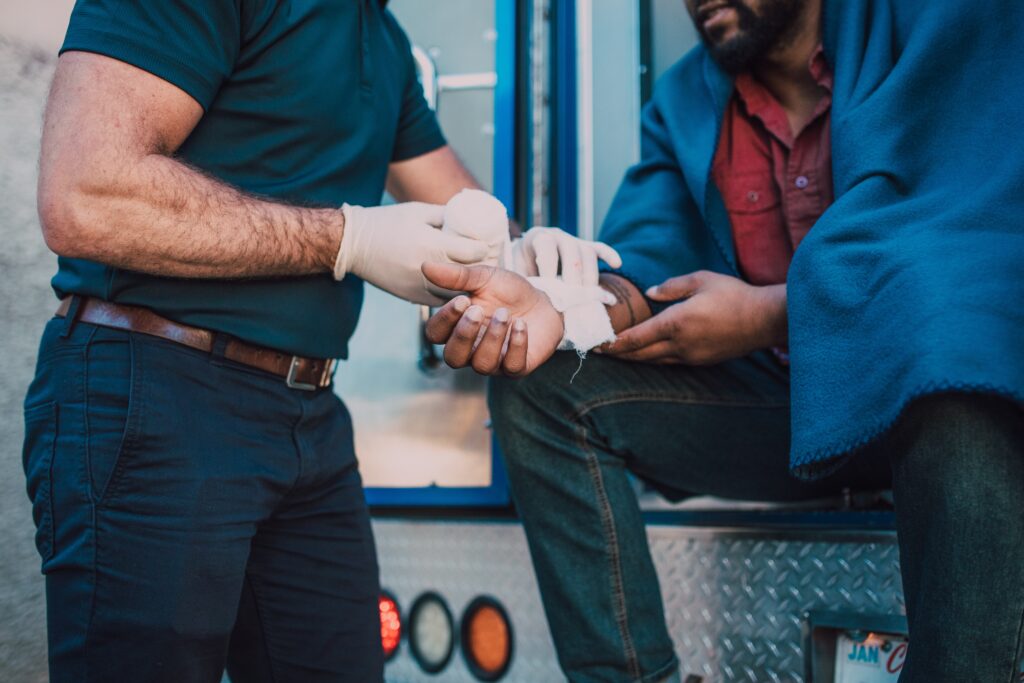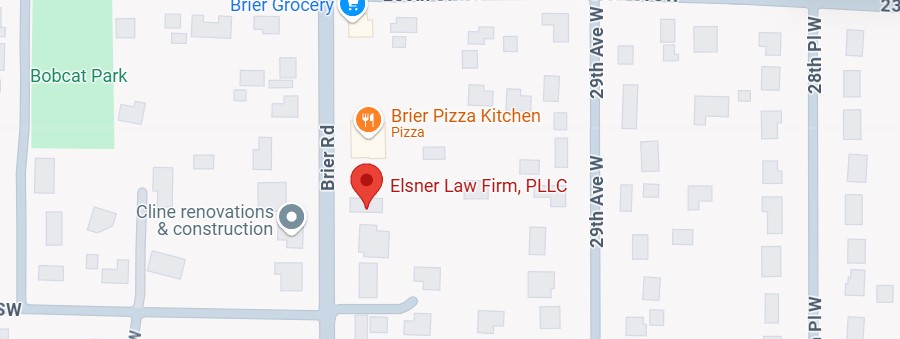Experiencing a car crash is a deeply unsettling event, and it can lead to complex injuries, such as traumatic brain injuries (TBI), which are a type of traumatic injury often resulting from vehicle accidents. These injuries can be elusive and challenging to diagnose, often leaving victims feeling lost and unsure about their next steps.
At Elsner Law Firm, we understand the profound impact a TBI can have on your life. TBI affects individuals differently depending on several factors, including the nature of the traumatic injury and the specific circumstances of the vehicle accident. We’re here to guide you through understanding and potentially combating this serious condition.
For a comprehensive understanding of TBIs and their consequences, it is important to seek detailed information from authoritative sources.
What is a Traumatic Brain Injury (TBI)?
A TBI is caused by external forces such as a bump, blow, or jolt to the head that disrupts normal brain function, and can result from a direct impact or even from forces that do not involve direct contact with the head. While TBIs range in severity from mild (commonly known as concussions) to severe, every TBI needs to be taken seriously and treated with immediate attention. Mild TBI (mild traumatic brain injury) often involves temporary symptoms like headaches, confusion, or sleep disturbances, while moderate or severe TBI can cause more significant and lasting impairments. Serious injury is typically classified by higher injury severity scores and may require extensive medical intervention and longer recovery.
Common Types of TBIs from Car Accidents
- Concussions: Perhaps the most well-known form, concussions can occur from a direct blow to the head or when the brain undergoes significant movement within the skull, such as from rapid acceleration or deceleration. A concussion is a common mild TBI resulting from car accidents, often leading to temporary changes in brain function.
- Diffuse Axonal Injury (DAI): This type of injury happens when the brain rapidly shifts inside the skull, potentially tearing the brain cells and causing extensive damage to various brain functions.
- Contusions and Hematomas: These refer to bruises or bleeding on the brain, often occurring at the site of impact or on the opposite side of the brain due to the force of the collision. Contusions and hematomas can involve damage to brain tissue and blood vessels, which may result in swelling, increased pressure, and further complications.
- Skull fracture and skull fractures: Skull fractures occur when the bone of the skull breaks due to the force of a car accident. Skull fractures are significant because they can increase the risk of brain injury, are classified by severity in injury scales, and are often identified through medical imaging or autopsy reports.
Nerve damage can also result from traumatic brain injuries, especially when injuries at the base of the skull affect the cranial nerves. This type of nerve damage can lead to various neurological symptoms, depending on which nerves are involved.
Signs and Symptoms of TBI
Recognizing TBI symptoms can be tricky as they may not appear immediately and can be easily mistaken for other ailments. Common symptoms include:
- Persistent headaches or migraines
- Memory loss
- Changes in behavior or mood
- Visual disturbances
- Dizziness or loss of balance
Both children and adults can experience similar symptoms after a traumatic brain injury, but some age groups, such as older adults, may face unique challenges in recognizing or communicating these symptoms. The incidence and presentation of TBI symptoms can vary by age group, with older adults being particularly vulnerable due to overlapping symptoms with other age-related conditions. It is especially important to monitor older adults for subtle or delayed signs of TBI.
These symptoms could emerge days, weeks, or even months after an accident, making it crucial for accident victims to monitor their health closely following a collision.
Immediate Steps to Take if You Suspect a TBI After a Car Accident
- Seek Medical Attention: Immediate and thorough medical evaluation is critical, even if no symptoms are apparent initially. If you suspect a traumatic brain injury after a car accident, it is essential to go to the emergency room for immediate evaluation, as prompt treatment can be life-saving. Early diagnosis can significantly influence the treatment and management of the injury. Always consult a healthcare provider for proper diagnosis and ongoing care, as they play a vital role in managing both immediate and long-term effects of TBI. According to the CDC, tbi related hospitalizations are common after motor vehicle accidents, with traumatic brain injuries caused by car crashes leading to significant numbers of hospitalizations and fatalities each year.
- Consult with a Knowledgeable Attorney: Understanding your legal rights and options is just as crucial as addressing your medical needs. At Elsner Law Firm, we provide compassionate and competent legal guidance to ensure that your rights are protected and that you receive the compensation you rightfully deserve.
- Document Everything: Keep detailed records of all medical visits, treatments, symptoms, and related expenses. Be sure to document every aspect of the traumatic injury, as well as any signs of increased risk for complications if the injury is not properly managed. This documentation can be invaluable in legal proceedings and insurance claims.
At Elsner Law Firm, we’re dedicated to assisting our clients through these challenging times with empathy, expertise, and relentless advocacy. If you suspect that you or a loved one has sustained a TBI from a car accident, please do not hesitate to reach out to us. Remember, your initial consultation is free, and it’s a step towards ensuring your health and securing your future.
You’re not alone in this journey. We’re here to lighten the load and guide you on the path to recovery and justice. For more information on what to expect during your TBI recovery journey, read our comprehensive guide. Call us today for your free consultation 206-447-1425.
Long-Term Effects of Traumatic Brain Injuries
Traumatic brain injuries can have lasting consequences that extend far beyond the initial accident. For many individuals, severe TBIs may result in permanent brain damage, affecting their ability to perform daily activities and leading to chronic health conditions such as epilepsy, Parkinson’s disease, or even dementia. Even mild TBIs, like concussions, can cause ongoing symptoms—persistent headaches, dizziness, and trouble concentrating are not uncommon. Emotional and behavioral changes, including depression, anxiety, and mood swings, can also develop and may persist for months or years after the injury.
The long-term impact of traumatic brain injuries is significant, making TBIs a leading cause of death and disability in the United States. In 2021 alone, there were over 69,000 TBI-related deaths, underscoring the seriousness of these injuries. Because symptoms can evolve over time, it’s crucial for anyone who has suffered a brain injury to receive continuous medical attention and support. Healthcare providers play a vital role in helping individuals and their families manage symptoms, adapt to new challenges, and improve quality of life after a TBI.
Prevention: How to Reduce the Risk of Head Injuries in Car Accidents
Reducing the risk of head injuries and traumatic brain injuries in car accidents starts with proactive safety measures. Always wearing a seatbelt is one of the simplest and most effective ways to protect yourself from serious brain injuries during a motor vehicle crash. Avoiding distractions—such as texting or using a phone while driving—and strictly following traffic laws can also greatly decrease your risk of being involved in a collision.
Modern vehicles are equipped with advanced safety features like airbags, anti-lock braking systems (ABS), and electronic stability control (ESC), all of which help minimize the severity of injuries in the event of a crash. For those riding motorcycles or bicycles, wearing a helmet is essential for preventing head injuries. According to the National Center for Health Statistics, motor vehicle crashes remain a major cause of TBI-related deaths and hospitalizations. By staying vigilant, making safe choices behind the wheel, and ensuring your vehicle is equipped with proper safety features, you can significantly lower your risk of sustaining a traumatic brain injury and help promote a safer community for everyone.
Understanding TBI in Children
Traumatic brain injuries can affect children differently than adults, largely because their brains are still developing. When a child experiences a TBI, it can disrupt their cognitive, emotional, and social growth, sometimes leading to challenges with attention, memory, and learning. Parents and caregivers may also notice changes in behavior, such as increased irritability or difficulty managing emotions.
Because symptoms of TBI in children can be subtle or mistaken for other issues, it’s important for families and healthcare providers to monitor for any changes and seek prompt medical attention if a head injury is suspected. The Centers for Disease Control and Prevention (CDC) identifies TBIs as a leading cause of death and disability among children and adolescents. Early intervention and ongoing support are essential to help young people recover and reach their full potential after a brain injury.
Emotional and Behavioral Changes After a TBI
After a traumatic brain injury, it’s common for individuals to experience a range of emotional and behavioral changes. These can include mood swings, depression, anxiety, and increased irritability. In some cases, a TBI may even lead to noticeable personality changes, such as heightened aggression or impulsivity, which can be distressing for both the individual and their loved ones.
Coping with these changes can be challenging, but support is available. Ongoing therapy, counseling, and support groups can help individuals and families manage symptoms and adjust to new realities. Healthcare providers are key partners in recognizing and addressing emotional and behavioral changes after a TBI, ensuring that patients receive the care and resources they need to navigate this difficult journey.
Support and Resources for Families Coping with TBI
When a loved one suffers a traumatic brain injury, the entire family is affected. The road to recovery can be long and complex, often requiring a network of support and resources. Support groups and counseling services offer emotional guidance, while rehabilitation programs help individuals regain lost skills and adapt to new challenges. Families may also need assistance navigating financial concerns, such as applying for disability benefits or managing medical bills related to TBI care.
Organizations like the Brain Injury Association of America provide valuable information and connect families with local resources. Healthcare providers, social workers, and community organizations can also play a crucial role in helping families access the support they need. By building a strong support system, families can better manage the challenges of living with a brain injury and work toward improving their loved one’s quality of life.
Key Statistics: The Impact of TBIs from Car Accidents
The impact of traumatic brain injuries from car accidents is profound, affecting not only individuals but also families and communities. According to the National Highway Traffic Safety Administration (NHTSA), motor vehicle crashes accounted for over 36,000 fatalities in 2019, with TBIs being a leading cause of death in these incidents. The Centers for Disease Control and Prevention (CDC) further reports that TBIs result in more than 280,000 hospitalizations and 2.5 million emergency department visits each year in the United States.
Beyond the human toll, the economic burden of traumatic brain injuries is staggering, with annual costs estimated to exceed $13 billion. These statistics highlight the urgent need for increased awareness, prevention, and support for those affected by brain injuries. By understanding the scope and impact of TBIs, we can work together to reduce the incidence of these injuries and foster a safer, healthier future for all.






